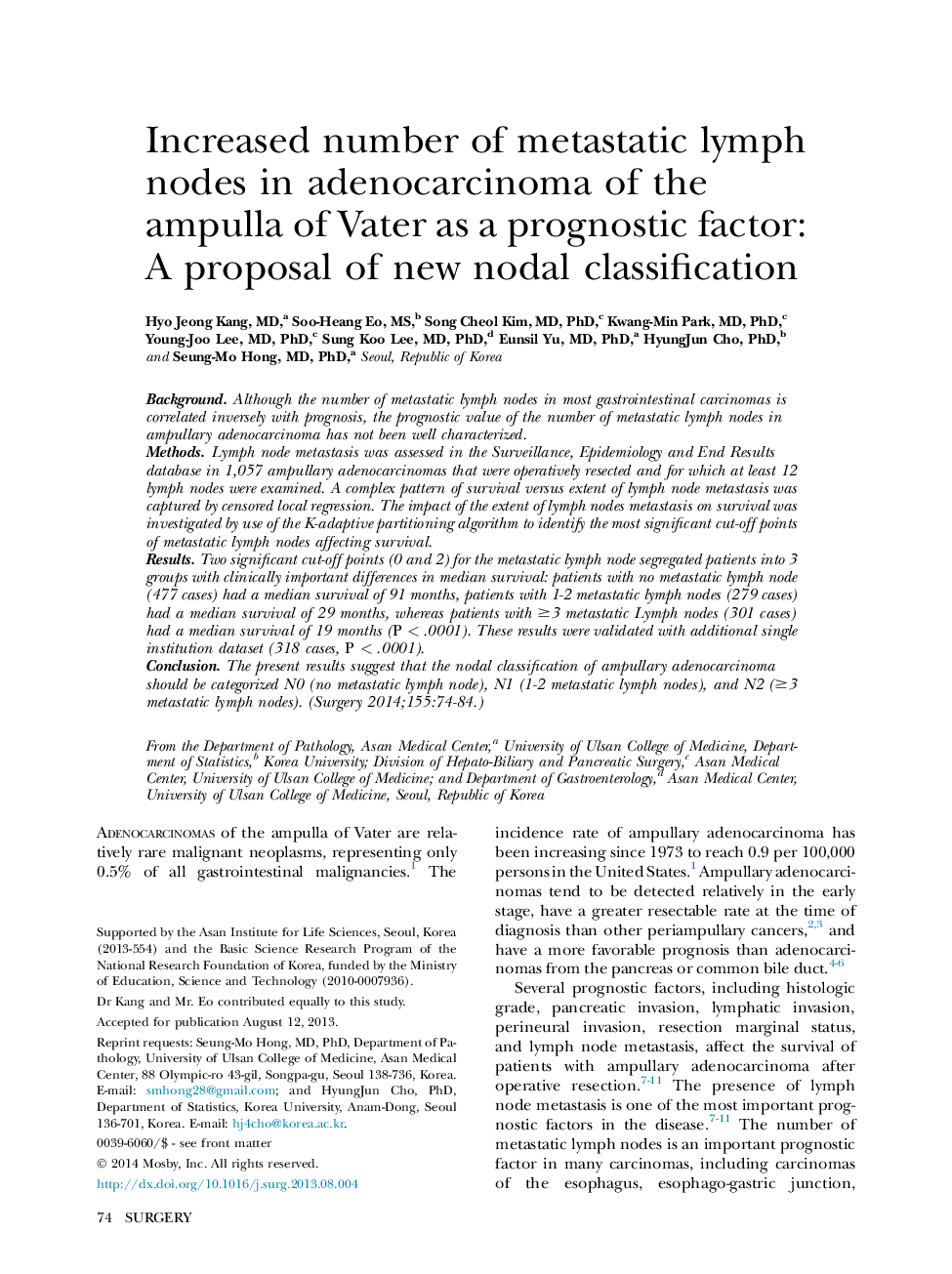| Article ID | Journal | Published Year | Pages | File Type |
|---|---|---|---|---|
| 4306861 | Surgery | 2014 | 11 Pages |
BackgroundAlthough the number of metastatic lymph nodes in most gastrointestinal carcinomas is correlated inversely with prognosis, the prognostic value of the number of metastatic lymph nodes in ampullary adenocarcinoma has not been well characterized.MethodsLymph node metastasis was assessed in the Surveillance, Epidemiology and End Results database in 1,057 ampullary adenocarcinomas that were operatively resected and for which at least 12 lymph nodes were examined. A complex pattern of survival versus extent of lymph node metastasis was captured by censored local regression. The impact of the extent of lymph nodes metastasis on survival was investigated by use of the K-adaptive partitioning algorithm to identify the most significant cut-off points of metastatic lymph nodes affecting survival.ResultsTwo significant cut-off points (0 and 2) for the metastatic lymph node segregated patients into 3 groups with clinically important differences in median survival: patients with no metastatic lymph node (477 cases) had a median survival of 91 months, patients with 1-2 metastatic lymph nodes (279 cases) had a median survival of 29 months, whereas patients with ≥3 metastatic Lymph nodes (301 cases) had a median survival of 19 months (P < .0001). These results were validated with additional single institution dataset (318 cases, P < .0001).ConclusionThe present results suggest that the nodal classification of ampullary adenocarcinoma should be categorized N0 (no metastatic lymph node), N1 (1-2 metastatic lymph nodes), and N2 (≥3 metastatic lymph nodes).
